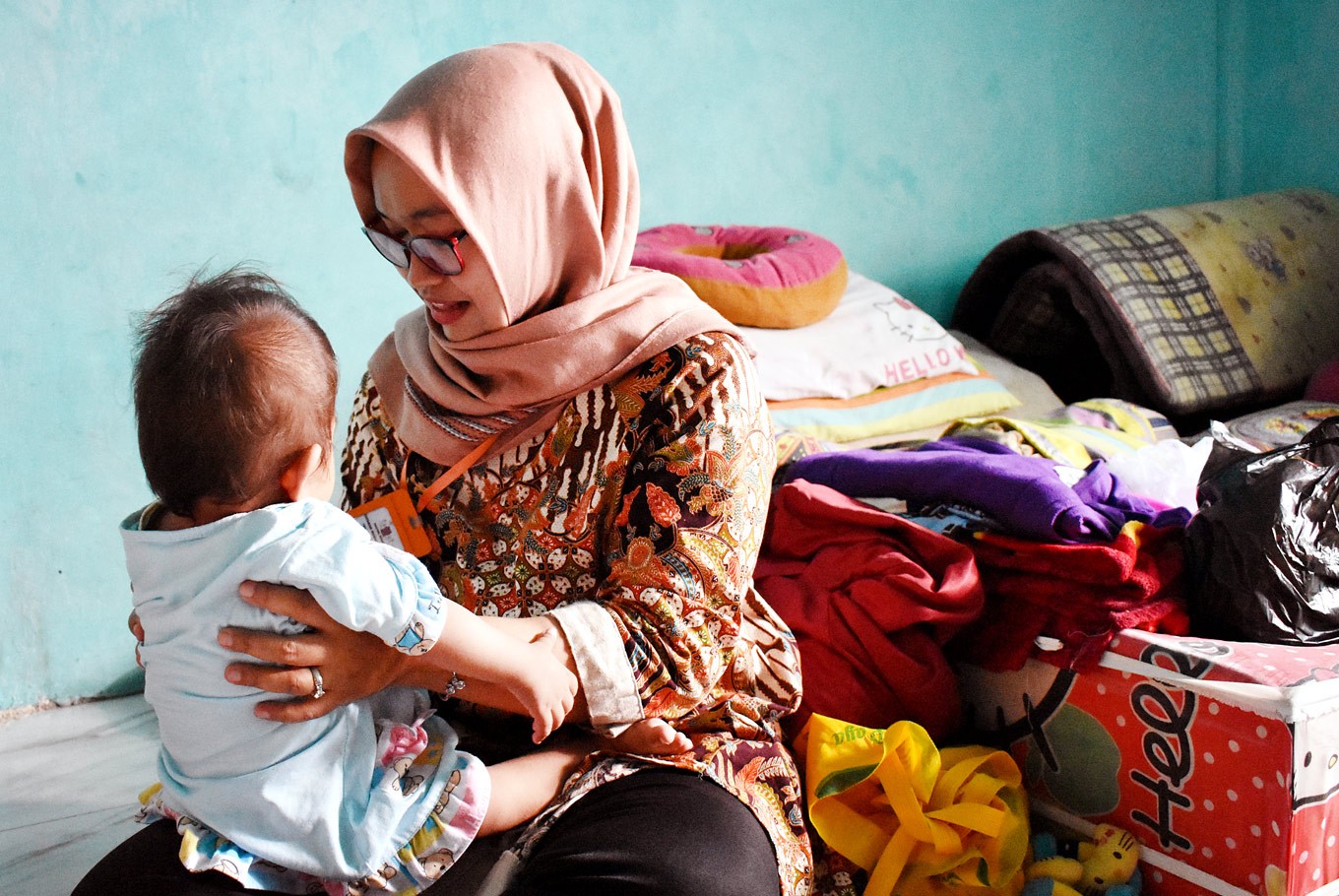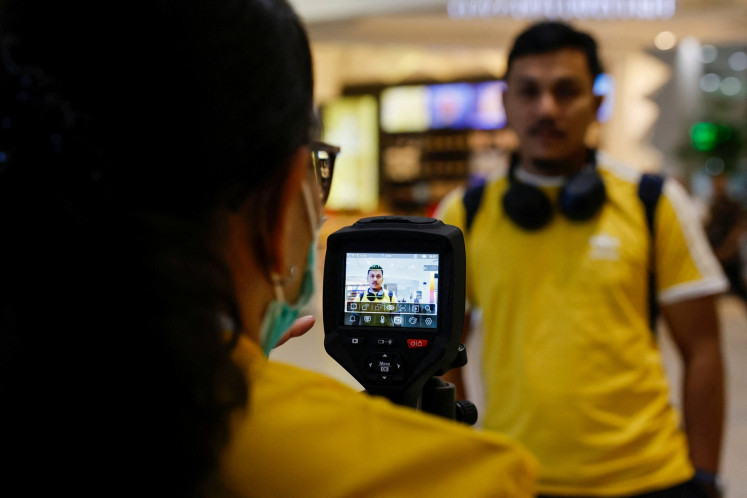Popular Reads
Top Results
Can't find what you're looking for?
View all search resultsPopular Reads
Top Results
Can't find what you're looking for?
View all search resultsPalliative care lends a helping hand
In a high-density neighborhood in North Jakarta, nurse Susi is visiting one of her patients. Dea, not her real name, is 18 months old and HIV positive.
Change text size
Gift Premium Articles
to Anyone
I
n a high-density neighborhood in North Jakarta, nurse Susi is visiting one of her patients. Dea, not her real name, is 18 months old and HIV positive.
At her young age, Dea has already had a serious bout of pneumonia, which left her with respiratory issues.
Dea lives in a one room apartment with her mother Rini (not her real name), who also has HIV, and her 8-year-old sister. They recently moved into the apartment, which, despite its small size, has running water — a big improvement from the conditions they were living in before.
Susi is satisfied that Dea’s health is improving. The bloating in her abdomen, a sign of severe malnutrition, has decreased and she is putting on weight. The symptoms of a severe ear infection are also disappearing. The little girl is starting to eat more solid foods and is building enough muscle in her legs to be able to stand when she has something to hold.
Rini supports her family by selling rambutan and powdered drink mixes but hopes when Dea’s condition stabilizes she’ll have the energy to return to work, doing laundry.
In her weekly visits, Susi monitors Dea’s and Rini’s conditions. She has been working at Rachel House, a nonprofit organization that specializes in children’s palliative care, for a decade now.
Palliative care is a healthcare approach to improve quality of life and limit suffering for people with serious illnesses by managing symptoms and pain. Rachel House works with children with advanced cancer, when treatment is no longer viable, and children living with HIV.
For Susi, it is not just about health care. Rachel House takes a holistic approach to palliative care — taking into account medical, social, economic and spiritual factors. “The basic concept of palliative care is how you can support the patient, how you can have kindness, empathy and compassion for patients,” she says.
Lynna Chandra, an investment banker, founded Rachel House in 2006 after the death of a friend to cancer. It was the first pediatric palliative care service in Indonesia.
In the beginning, she thought the solution was a building, with her plan to set up a 60-bed hospice. She soon realized her dream of “an Indonesia where people don’t have to live or die in pain” would not be that simple.
“What I didn’t realize back then was that pain management was not the practice and the whole mind-set needed to change,” explained Lynna, “My one-year target was way too simplistic.”
At the time, there was very little training in palliative care and only one doctor in Jakarta who specialized in it. Doctors in general hospitals were reluctant to provide pain management as they were afraid it would mask the cause of the pain.
She also acknowledged the socioeconomic factors at play, and the focus changed from in-patient to home care. “If we are to serve the poor, then home care is where we need to be because the families who earn very little in daily income can’t afford to keep their child in a hospital.”
The nurses of Rachel House get support from a network of community volunteers — an existing network of what they call “gossip women” in the community who know who is sick in their neighborhoods. This system soon started in a very informal way until Susi helped pilot the formal volunteer program in 2013.
Lynna said the collaboration is empowering for the volunteers. “It allows the women to have a social standing. They are very proud, and they feel needed.”
But there are challenges Rachel House faces, especially with HIV patients.
“Indonesia is currently one of the slowest improving countries when it comes to HIV, especially in the children’s sector,” says Lynna.
In 2012, the United Nations said the HIV epidemic in Indonesia was among the fastest expanding worldwide.
Cases like Dea’s and Rini’s are common in Asia. In 2016, there was only 19 percent treatment coverage for prevention of mother to child HIV transmission.
There is significant stigma around HIV and nurses aren’t exempted. An article in the Journal of Association of Nurses in AIDS said the level of HIV stigma among Indonesian nurses was “unacceptably high”.
Mothers of children with chronic conditions sometimes face shame from their families. “We’ve had many cases where the mother-in-law will say to the daughter-in-law it’s your fault your children are sick,” Lynna explains.
Dea’s grandmother was out of the picture until recently. But after encouragement from Susi, she helps pick up retroviral medications for Dea and Rini from local clinics.
Lynna believes the future of Rachel House is not scaling the organization to cover everyone, but rather to train professionals.
Susi trains staff at local hospitals and hopes the collaboration system between community volunteers, healthcare professionals and NGOs, like the one started by Rachel House, can be applied elsewhere.
“The government can look at the model from Rachel House and see how this palliative care ecosystem can be replicated in another area,” says Susi.
Lynna acknowledged that convincing the government may not be easy, but they would continue to campaign for change.
***
The writer is an intern with the ACICIS program.











